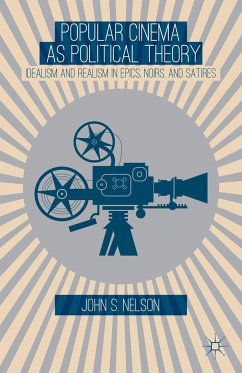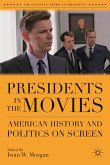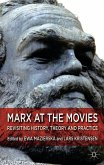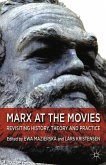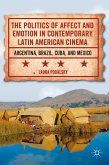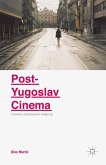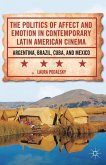The book presents cinematic case studies in political realism versus political idealism, demonstrating methods of viewing popular cinema as political theory. The book appreciates political myth-making in popular genres as especially practical and accessible theorizing about politics.
'In this insightful analysis, John Nelson examines the intersections of popular culture and politics. Treating film as examples of practical reasoning, Nelson explores the ways in which cinematic texts contribute to public understandings of our communal life. He analyzes film through the lenses of genre (epic, noir, satire) and political theory (with particular emphasis on realism and idealism) and concludes that cinematic myth making both reflects and defines public understanding of politics in interesting ways. Nelson's book provides important evidence that political philosophy is neither dead nor confined to the academy, but is an on-going, shared enterprise, actively engaged in by the mass public. Well-written and provocative, this book will interest students and scholars of film, popular culture, history, rhetoric, and politics.' Mary E. Stuckey, Professor, Communication and Political Science, Georgia State University, USA
'Just what do we see at the movies? Fantasy and fashion aplenty, but political theory? John Nelson's answer to this question is both surprising and compelling. Popular films teach their audiences how to think about politics pragmatically and creatively and by using the ideas, although not the terms, that have defined political philosophy. Nelson provides a detailed and systematic vocabulary for critical study of how this public art mediates political experience. This original book is sure prompt many vibrant discussions about media and politics.' Robert Hariman, Northwestern University, USA, and author of Political Style: The Artistry of Power
'In Popular Cinema as Political Theory Nelson offers a subtle formal analysis of genre, an impressive categorizing of films within his three chosen genres, combined with a series of deft readings of a wide variety of popular films. Most readers of this book will know (and love) some of the films discussed herein and many will know most, but every reader will take away from the book a deeper appreciation for how popular cinema today operates as political theory.' Samuel A. Chambers, Associate Professor of Political Science, Johns Hopkins University, USA, and Editor, Contemporary Political Theory
"John Nelson's latest publication, Popular Cinema as Political Theory, explores the field of political theory through the unconventional lens of popular film and television. Nelson's work classifies the cultural artifacts studied into three areas: epics, noirs, and satires. He uses these narrative demarcations to open up the films under discussion to explore them along side classical texts and conceptions within political theory while highlighting the ways in which contemporary political myths work their way into our common cultural conversation, often unbeknownst to us as citizens. Nelson's astute analysis provides a fresh and convincing exploration of some of the most popular films of the past two decades. He also teaches the reader to be aware of what is communicated through often unexplored or unanticipated cultural avenues. This book makes a significant contribution to the field of political theory by using popular culture texts to examine classical themes and narrative conceits." Lilly J. Goren, Professor of Political Science, Carroll University, USA
'Just what do we see at the movies? Fantasy and fashion aplenty, but political theory? John Nelson's answer to this question is both surprising and compelling. Popular films teach their audiences how to think about politics pragmatically and creatively and by using the ideas, although not the terms, that have defined political philosophy. Nelson provides a detailed and systematic vocabulary for critical study of how this public art mediates political experience. This original book is sure prompt many vibrant discussions about media and politics.' Robert Hariman, Northwestern University, USA, and author of Political Style: The Artistry of Power
'In Popular Cinema as Political Theory Nelson offers a subtle formal analysis of genre, an impressive categorizing of films within his three chosen genres, combined with a series of deft readings of a wide variety of popular films. Most readers of this book will know (and love) some of the films discussed herein and many will know most, but every reader will take away from the book a deeper appreciation for how popular cinema today operates as political theory.' Samuel A. Chambers, Associate Professor of Political Science, Johns Hopkins University, USA, and Editor, Contemporary Political Theory
"John Nelson's latest publication, Popular Cinema as Political Theory, explores the field of political theory through the unconventional lens of popular film and television. Nelson's work classifies the cultural artifacts studied into three areas: epics, noirs, and satires. He uses these narrative demarcations to open up the films under discussion to explore them along side classical texts and conceptions within political theory while highlighting the ways in which contemporary political myths work their way into our common cultural conversation, often unbeknownst to us as citizens. Nelson's astute analysis provides a fresh and convincing exploration of some of the most popular films of the past two decades. He also teaches the reader to be aware of what is communicated through often unexplored or unanticipated cultural avenues. This book makes a significant contribution to the field of political theory by using popular culture texts to examine classical themes and narrative conceits." Lilly J. Goren, Professor of Political Science, Carroll University, USA

